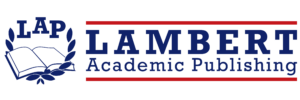
For every author, seeing their book published is a dream come true. But the journey from manuscript to finished product can raise concerns about creative control in book publishing. This article explores the balance between authorial vision and publisher’s expertise, along with steps you can take to safeguard your creative input.
What part of the brain controls creative writing?
Interesting fact – did you know that creative writing is controlled by the prefrontal cortex? This region is responsible for higher-order thinking, including imagination, planning, and emotional regulation. It’s where your unique voice and story come to life!
Hybrid Publishing
Author satisfaction with creative control in traditional publishing is increasing. A 2024 study by the Publishing Research Consortium found 73% of authors felt they had significant influence over the editing and presentation of their work.
How Much Creative Control Do Authors Have Over Their Books?
The level of creative control an author has over their book varies depending on the publishing route chosen.
Traditional publishers offer a wealth of experience in editing, design, and marketing, but this expertise often comes with a trade-off in creative control. Editors may suggest significant changes to improve clarity, pacing, or marketability.
Self-publishing offers the ultimate freedom in shaping your book. You have complete control over the editing process, choosing the level of editing you desire (developmental, copyediting, etc.)
The ideal level of creative control depends on your individual priorities.
- Do you value editorial expertise and established marketing channels? Traditional publishing may be a good fit.
- Do you prioritize absolute control over your work and are willing to invest time and effort in editing, design, and marketing? Self-publishing can be the right path.
- Are you looking for a middle ground, with some editorial guidance and support but still maintaining a significant role in shaping your book? Hybrid publishing could be the answer.
Ultimately, the best publishing route is the one that allows you to achieve your goals while staying true to your creative vision.
How Much Control Does a Publisher Have?
Traditional publishers often hold significant sway over a book’s final form. This can include:
- Editing and revisions: Editors suggest changes to improve clarity, flow, and marketability.
- Cover design: Publishers create covers that align with their brand and target audience.
- Marketing and distribution: Publishers determine how the book is promoted and sold.
4 Steps Authors Can Take to Maintain Creative Control While Publishing

1. Choose the Right Publishing Partner
Research different publishers and understand their editorial style. Look for one that aligns with your genre and respects authorial vision. At Lambert Academic Publishing we believe in the authors’ voice and try to keep it unchanged as much as possible.
2. Negotiate Your Contract Carefully:
Pay close attention to clauses regarding editing, cover design, and marketing. Negotiate for control over aspects that are crucial to your vision.
3. Be Prepared to Advocate
Clearly communicate your vision for the book throughout the publishing process. Be prepared to discuss proposed changes and offer alternatives that align with your goals.
4. Work with a Self-Publishing Service Provider
Self-publishing platforms provide guidance and tools but may offer less editorial control than traditional publishers.
Self-Publishing with Lambert Academic Publishing
While self-publishing offers benefits like higher book royalty rates, it’s not for everyone. Some authors may still find traditional publishing to be the best option, especially for those seeking more benefits of publishing their thesis. Publishers like Lambert Academic Publishing aim to find a middle ground, prioritizing the author’s perspective and feedback, making it an appealing choice for those seeking a balance between creative control and the resources of a traditional publisher. Besides this, LAP offers advantages like:
- Zero fees for authors
- 12% royalty payments on book sales
- Distribution in 60 countries
Do you get paid for publishing an academic book?
Yes, with Self-Publishing, you earn royalties on every book sold. The rates usually depend on the publishing house you choose.
By understanding the dynamics of creative control and taking proactive steps, you can ensure your book reaches the world while staying true to your vision.
